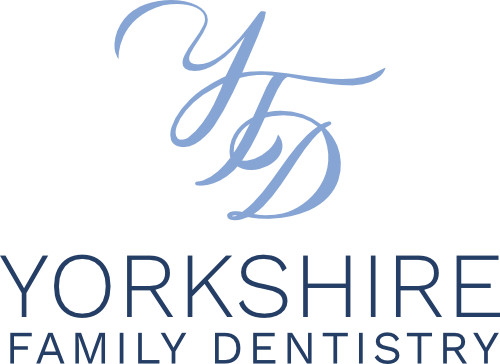Oral Cancer Prevention in Yorkshire: Partner with Your Local Dental Experts

Oral cancer is a serious health concern that affects thousands of individuals every year. Despite advancements in medical care, many cases of oral cancer are not diagnosed until the disease has reached an advanced stage—making treatment more difficult and outcomes less favorable.
Raising awareness about oral cancer is essential. Routine dental visits, where early signs can be detected, play a significant role in catching the disease before it progresses. This blog explores the importance of early detection, the risk factors involved, and what individuals can do to protect themselves and their families.
Why Early Detection of Oral Cancer Is So Important
Early diagnosis of oral cancer greatly improves the likelihood of successful treatment. According to studies, the survival rate is significantly higher when the cancer is identified in its early stages. Unfortunately, symptoms can be subtle or mistaken for other oral conditions, leading many people to delay seeking professional evaluation.
Regular dental check-ups often include an oral cancer screening—an important component of preventive care that can identify abnormal tissue changes before they become dangerous. These screenings are typically quick, painless, and can be life-saving.
Who Is at Risk for Oral Cancer?
Oral cancer can affect anyone, but certain lifestyle choices, environmental exposures, and health conditions can increase the risk. Understanding these risk factors can help individuals take preventive steps and prioritize regular screenings.
Common Risk Factors Include
- Tobacco Use: Smoking and chewing tobacco are among the most significant contributors to oral cancer.
- Alcohol Consumption: Excessive drinking, especially when combined with tobacco use, increases the risk substantially.
- Human Papillomavirus (HPV): Certain strains of HPV are linked to cancers in the mouth and throat.
- Prolonged Sun Exposure: Chronic sun exposure can lead to cancer of the lips, particularly the lower lip.
- Poor Nutrition: Diets lacking in essential nutrients may contribute to the development of oral cancers.
- Weakened Immune System: Chronic conditions or medications that suppress the immune system can raise susceptibility.
- Chronic Irritation: Ill-fitting dentures or dental appliances that cause repeated irritation may also be a contributing factor.
- Genetics and Family History: Individuals with a family history of oral or other cancers may be at greater risk.
While having one or more of these risk factors doesn’t guarantee the development of oral cancer, being aware of them can help guide lifestyle changes and encourage regular screenings.
Recognizing Early Warning Signs of Oral Cancer
Oral cancer can appear in many forms and locations within the mouth, making it important to recognize a variety of symptoms. Some warning signs may be visible or felt, while others may go unnoticed without a professional examination.
Symptoms to Watch For
- Sores or ulcers that don’t heal within two weeks
- Red or white patches on the tongue, gums, or inner cheeks
- Lumps or thickening of tissues in the mouth or neck
- Persistent pain, tenderness, or numbness
- A sore throat that doesn’t go away
- Difficulty swallowing, chewing, or speaking
- Hoarseness or voice changes
- A change in the way dentures fit
If any of these symptoms persist, it is essential to consult a dental professional for further evaluation. Catching these signs early can make a critical difference in diagnosis and treatment outcomes.
How Dental Practices Support Oral Cancer Prevention
Most dental practices include oral cancer screenings as part of routine check-ups, especially for adult patients. These screenings typically involve a visual inspection and physical palpation of the head, neck, and oral cavity to identify any abnormalities.
In addition to the standard exam, some dental offices may also use diagnostic tools designed to detect changes in tissue health. These may include light-based technologies or imaging systems. It’s a good idea to ask your dentist about what methods are available during your next visit.
A Comprehensive Oral Cancer Screening May Include
- Visual examination of the lips, gums, tongue, roof of the mouth, and throat
- Palpation of the jaw, neck, and lymph nodes
- Review of medical history and risk factors
- Recommendations for follow-up testing if anything unusual is detected
In cases where a suspicious lesion is found, the dentist may refer the patient for additional evaluation, such as a biopsy or consultation with a specialist.
Reducing Your Risk: Practical Tips for Prevention
While not all risk factors can be controlled, there are several proactive steps individuals can take to reduce their chances of developing oral cancer.
Lifestyle Changes That Help
- Quit Tobacco Use: Seek support to stop smoking or using chewing tobacco.
- Limit Alcohol Intake: Moderate alcohol consumption can lower your risk.
- Eat a Balanced Diet: A diet rich in fruits and vegetables provides essential antioxidants and nutrients that support oral health.
- Protect Your Lips: Use lip balm with SPF and wear a wide-brimmed hat when exposed to the sun.
- Stay Hydrated: Proper hydration helps maintain a healthy oral environment.
- Practice Good Oral Hygiene: Brush and floss daily to keep your mouth clean and reduce inflammation.
- Visit Your Dentist Regularly: Routine check-ups are key to early detection and monitoring of oral health.
Teaching Oral Cancer Awareness at Every Age
Educating family members about the importance of oral cancer awareness can foster long-term health habits. Children, teens, and seniors alike benefit from regular dental check-ups and learning how to care for their mouths properly.
Some Ways to Promote Family-Wide Awareness Include
- Encourage monthly self-exams: Teach family members to check their mouth, tongue, cheeks, and lips for any unusual sores, lumps, or color changes. A quick self-check can lead to early detection.
- Schedule regular dental check-ups: Make routine visits a family tradition. Consistent check-ups ensure everyone receives professional screenings and stays on top of their oral health.
- Talk about lifestyle risks openly: Discuss the impact of smoking, alcohol use, poor nutrition, and excessive sun exposure in age-appropriate ways. These conversations help build lifelong awareness.
- Learn the warning signs together: Use educational materials from trusted sources or ask your dentist for guidance. Knowing what to look for empowers each family member to take action if needed.
- Create a supportive environment: Promote healthy habits like a balanced diet, good oral hygiene, and open communication. A positive, health-conscious home culture encourages everyone to stay proactive.
Making oral health a shared priority helps families not only prevent oral cancer but also reinforces the importance of caring for one another’s well-being—now and for years to come.
When to See a Dentist
If you notice any unusual symptoms in your mouth, don’t wait until your next scheduled visit. Contact a dental professional for an evaluation as soon as possible. Dentists are trained to identify early signs of oral cancer and can recommend next steps for testing and treatment if needed.
Remember: when it comes to oral cancer, early detection is not just beneficial—it’s potentially life-saving.
Final Thoughts: The Power of Awareness and Action
Oral cancer may not always receive as much public attention as other cancers, but its impact is real. The key to improving outcomes lies in awareness, regular screenings, and early intervention. Understanding your personal risk, staying alert to symptoms, and visiting the dentist regularly are all essential steps in protecting your health.
If it’s been a while since your last oral cancer screening, consider making it a priority. A few minutes during a routine dental appointment could make a lasting difference for you or someone you love.
Schedule Your Oral Cancer Screening Today
Your oral health is essential to your overall well-being. By partnering with Yorkshire Family Dentistry, you gain access to expert care focused on early detection and prevention. Visit Yorkshire Family Dentistry | Book your screening online | Call us today to prioritize your health!
